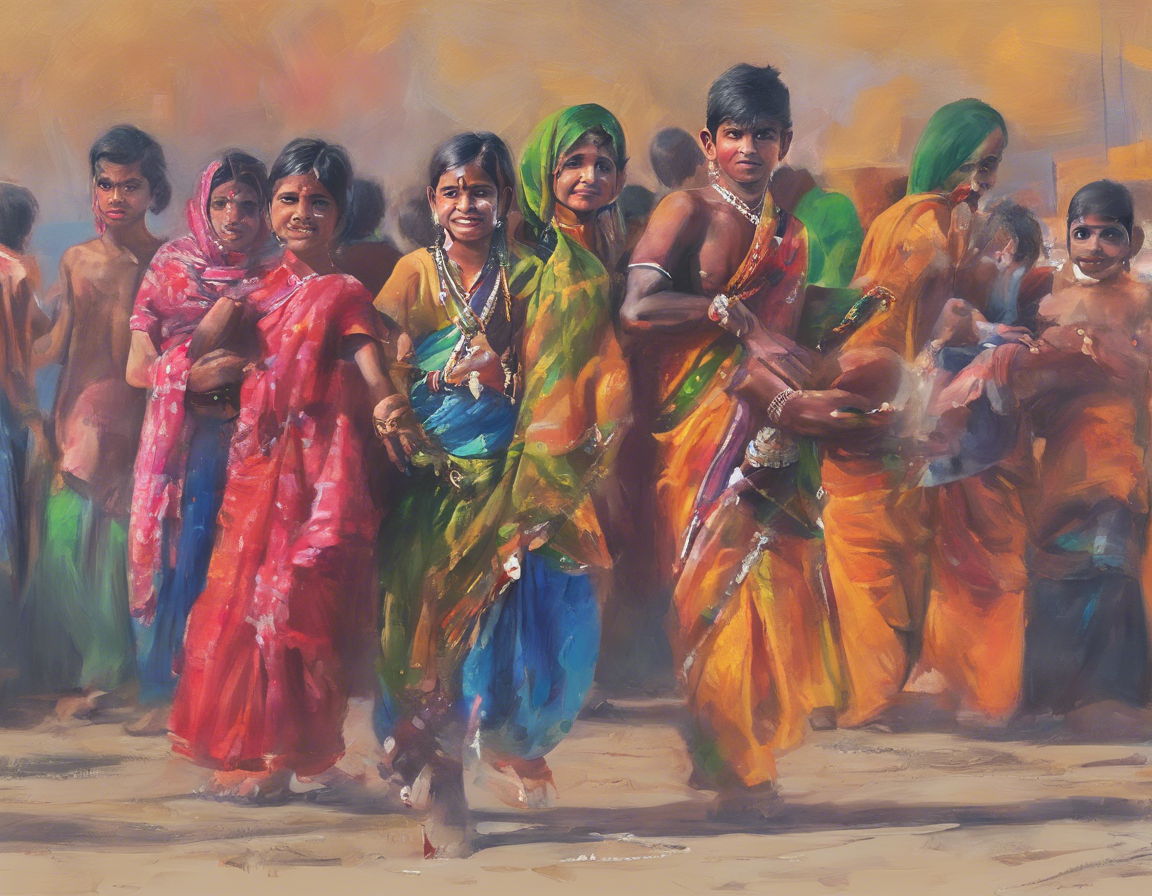Every year, the arrival of the month of Sawan in the Hindu calendar brings about a sense of excitement, devotion, and festivity. Sawan, which falls in the monsoon season, holds immense significance in Hindu mythology and culture. In 2023, Sawan is expected to begin in July and last for four weeks. This period is celebrated with great fervor by devotees of Lord Shiva, who consider it a highly auspicious time for prayers, fasting, and seeking blessings.
The Significance of Sawan:
Sawan holds special importance in Hinduism due to its association with Lord Shiva, the deity of destruction and transformation. According to Hindu mythology, it is believed that during this month, Lord Shiva consumed the Halahala poison that emerged from the churning of the ocean, thereby saving the world from destruction. As a result, devotees offer prayers, perform rituals, and observe fasts to seek Lord Shiva’s blessings for protection, prosperity, and well-being.
Observing Sawan 2023:
During the month of Sawan, devotees undertake various practices to demonstrate their devotion and seek the blessings of Lord Shiva. Some common rituals and customs observed during this time include:
1. Fasting (Vrat):
Devotees fast on Mondays during Sawan as it is believed to be particularly auspicious for Lord Shiva. Fasting is seen as a way to purify the body and mind, and devotees often abstain from consuming grains, salt, or certain types of food. Some people may observe a complete fast, consuming only fruits and milk.
2. Abhishekam (Holy Bath):
One of the most common rituals during Sawan is offering abhishekam to Lord Shiva. Devotees bathe the Shiva lingam with water, milk, honey, curd, ghee, and other sacred substances while chanting prayers and mantras. This act is believed to purify the soul and invoke the blessings of Lord Shiva.
3. Visiting Shiva Temples:
Devotees visit Shiva temples regularly during Sawan to offer prayers, perform puja, and seek blessings. Many temples organize special events, homas (fire rituals), and bhajans (devotional songs) dedicated to Lord Shiva during this month.
4. Wearing Rudraksha Beads:
Rudraksha beads are considered sacred in Hinduism and are believed to have a strong connection to Lord Shiva. During Sawan, devotees often wear rudraksha malas (bead necklaces) as a way to enhance their spiritual practices and connect with the energy of Lord Shiva.
Celebrating Sawan Festivals:
The month of Sawan is marked by several festivals and auspicious days that are celebrated with great enthusiasm by devotees. Some of the significant festivals during Sawan include:
1. Sawan Shivratri**:
Sawan Shivratri, also known as Masa Shivratri, is celebrated on the 14th day of the dark fortnight of Sawan. Devotees observe fasts, perform rituals, and stay awake all night to seek the blessings of Lord Shiva.
2. Nag Panchami:
Nag Panchami, dedicated to the worship of snakes, is observed on the fifth day of the bright half of Sawan. Devotees offer prayers to snake gods for protection and blessings.
3. Sawan Mondays**:
Each Monday of the Sawan month is considered highly auspicious for worshiping Lord Shiva. Devotees visit Shiva temples, offer prayers, and observe fasts on these days.
Mantras and Prayers for Sawan:
Chanting mantras and prayers dedicated to Lord Shiva is an integral part of the Sawan observance. Some powerful mantras that are commonly chanted during this time include:
1. Om Namah Shivaya**:
This is one of the most well-known and powerful mantras dedicated to Lord Shiva. Chanting “Om Namah Shivaya” is believed to invoke the blessings and protection of Lord Shiva.
2. Maha Mrityunjaya Mantra**:
The Maha Mrityunjaya Mantra is a potent prayer for healing and liberation. Chanting this mantra during Sawan is believed to bring health, longevity, and spiritual growth.
3. Om Trayambakam Yajamahe**:
This mantra is dedicated to Lord Shiva’s three-eyed form and is chanted for protection, prosperity, and liberation from suffering.
FAQs about Sawan 2023:
1. What is the importance of fasting during Sawan?
Fasting during Sawan is believed to purify the body and mind, enhance spiritual practices, and invoke the blessings of Lord Shiva for protection and well-being.
2. Can non-Hindus participate in Sawan rituals and observances?
Yes, people of all faiths are welcome to participate in the rituals and celebrations of Sawan as a way to experience the cultural and spiritual richness of Hindu traditions.
3. Why are Mondays particularly significant during Sawan?
Mondays are dedicated to the worship of Lord Shiva, and each Monday of the Sawan month is believed to amplify the benefits of prayers, fasting, and devotion.
4. How can I enhance my Sawan practices at home?
You can enhance your Sawan practices at home by creating a sacred space for prayers, chanting mantras, reading scriptures, observing fasts, and maintaining a devotional mindset throughout the month.
5. Are there any specific foods that are traditionally consumed or avoided during Sawan?
Devotees often consume satvik (pure) foods such as fruits, milk, nuts, and vegetables during Sawan. Foods like onions, garlic, and non-vegetarian items are usually avoided during this period to maintain purity.
In Conclusion:
Sawan 2023 presents a golden opportunity for devotees to deepen their spiritual practices, seek the blessings of Lord Shiva, and experience the beauty of Hindu traditions. By observing rituals, chanting mantras, visiting temples, and participating in festivals, devotees can imbibe the essence of devotion, purity, and reverence that define the month of Sawan. May this auspicious period bring peace, prosperity, and divine grace to all who partake in its celebrations.
